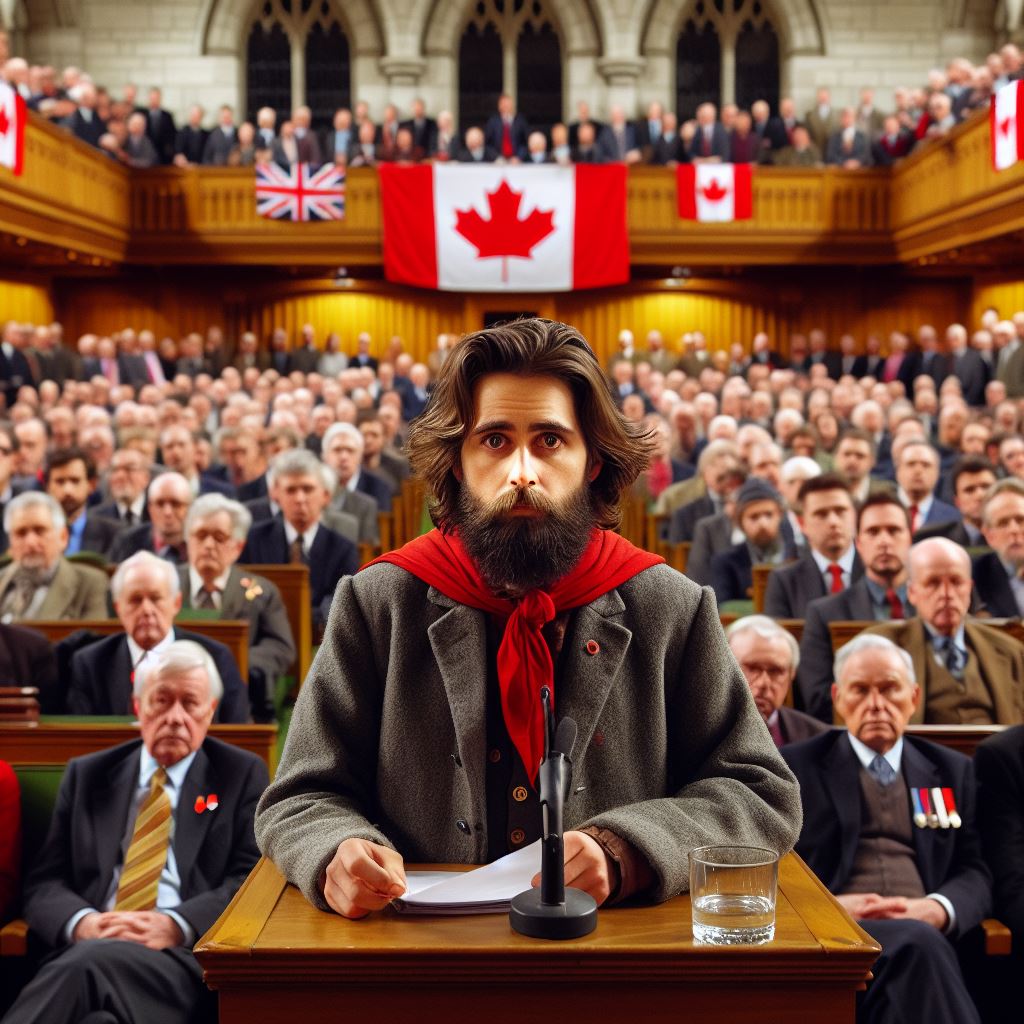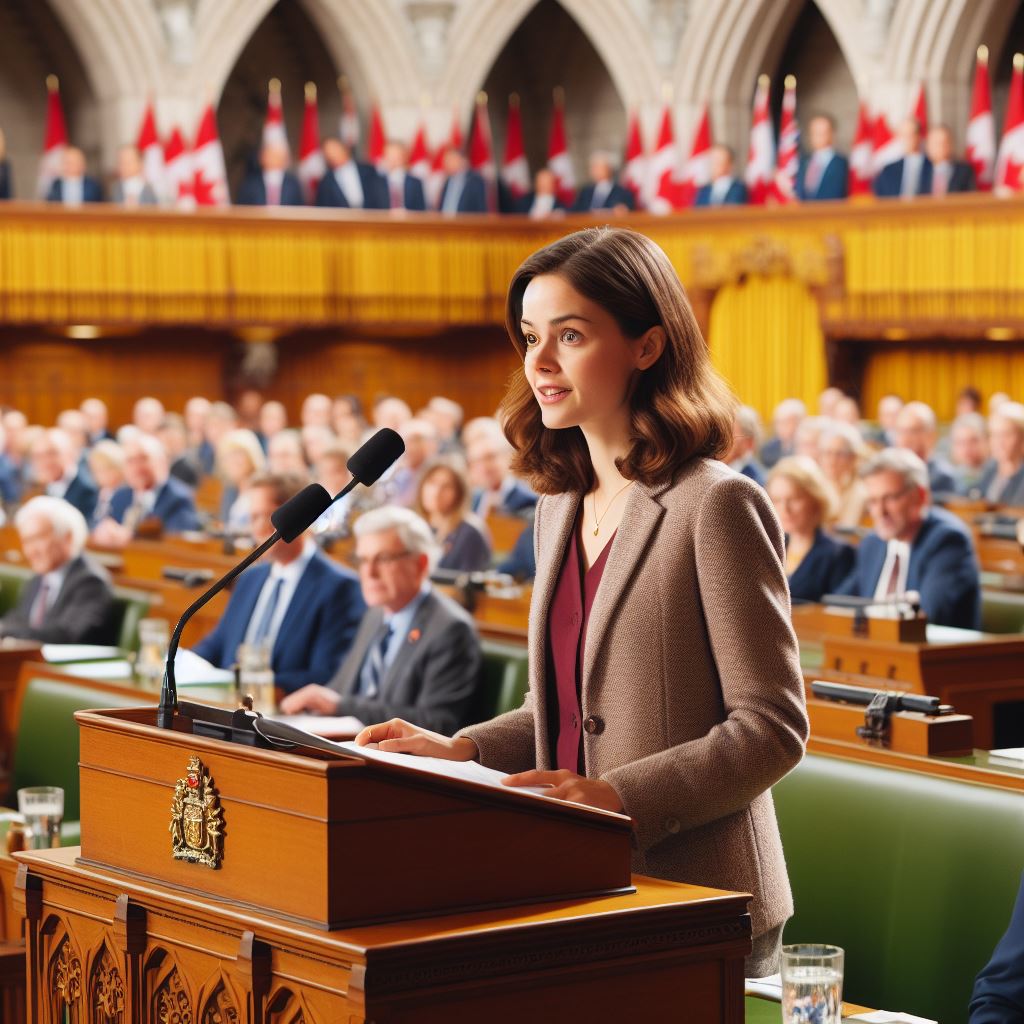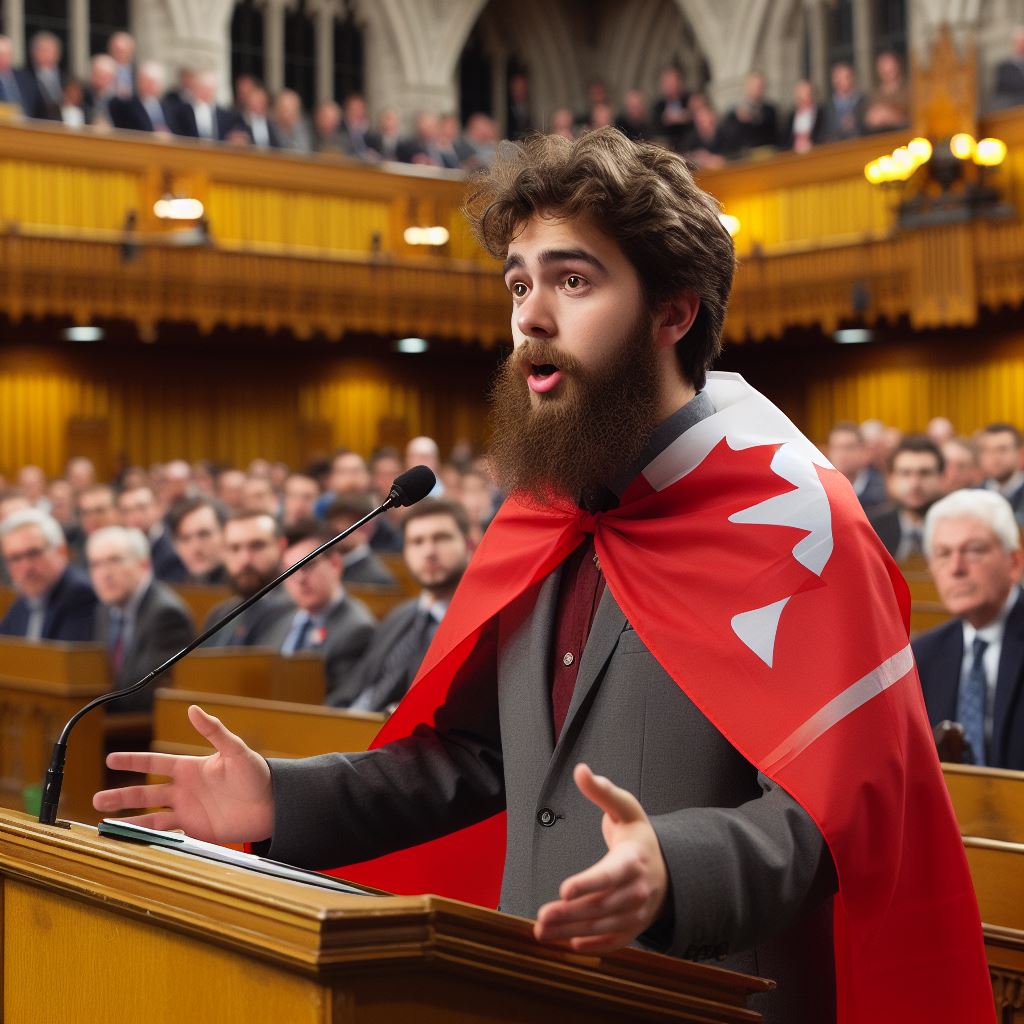Introduction
Political campaigns play a crucial role in the Canadian context, shaping the nation’s democratic process.
These campaigns serve as the primary method for political parties and candidates to engage with the citizens, communicate their policies, and seek support.
With the power to sway public opinion, political campaigns can influence election outcomes and shape the future of Canada.
This blog post aims to provide a comprehensive understanding of political campaigns in Canada.
By examining the strategies, tactics, and challenges involved, readers will gain insights into the inner workings of these campaigns.
Additionally, this post seeks to shed light on the key players, such as candidates, parties, and volunteers, and the role they play in shaping the campaign’s success.
Understanding political campaigns is essential for every Canadian citizen to become an informed voter.
By deciphering the various elements of a campaign, readers will be better equipped to analyze political messages critically and make educated decisions in elections.
Furthermore, this post aims to highlight the significance of grassroots movements and voter mobilization in Canadian campaigns, emphasizing the power of collective action in shaping political outcomes.
In short, this blog post will delve into the world of political campaigns in Canada, examining their importance, strategies, and impact on the country’s democratic process.
By understanding these campaigns, readers can actively engage in political discourse and contribute to shaping the future of Canada.
So let’s dive in and explore the fascinating world of political campaigns together.
Read: Canadian Political Ethics: A Deep Dive
Overview of the Canadian Political System
An overview of the Canadian political system
The Canadian political system is a parliamentary democracy.
It is based on constitutional monarchy, with the British monarch as the head of state.
Canada has a federal system, with power shared between the federal government and the provinces.
At the federal level, Canada has a bicameral legislature composed of the House of Commons and the Senate.
The role of political parties in Canada
Political parties play a crucial role in the Canadian political system.
They are instrumental in shaping public policy and representing the interests of different groups.
There are several major political parties in Canada, including the Liberal Party, the Conservative Party, and the New Democratic Party.
Smaller parties such as the Green Party and the Bloc Québécois also participate in elections.
Political parties campaign to win seats in the House of Commons during federal elections.
They develop policy platforms, engage in public debates, and seek support from voters.
Political parties in Canada are led by party leaders who represent their respective parties.
They play a significant role in shaping their party’s image and promoting their platforms.
Unlock Your Career Potential
Visualize a clear path to success with our tailored Career Consulting service. Personalized insights in just 1-3 days.
Get StartedThe electoral process and voting system in Canada
The electoral process in Canada is governed by the Canada Elections Act.
Federal elections are held every four years, unless a government falls due to a vote of no-confidence.
During elections, voters elect Members of Parliament (MPs) to represent them in the House of Commons.
The voting system in Canada is a mix of first-past-the-post and proportional representation.
Under the first-past-the-post system, the candidate with the most votes in each riding wins the seat.
This system is criticized for not proportionally reflecting the popular vote.
There have been calls for electoral reform to introduce a more proportional voting system.
The Canadian electoral system also includes regulations and restrictions on campaign finance and spending.
These rules aim to ensure fairness and prevent undue influence on the electoral process.
Voters in Canada have the right to cast their ballot without any form of discrimination.
They can vote in person at polling stations or by mail through special ballots.
The outcome of an election determines the composition of the House of Commons and ultimately the government.
The political party with the most seats in the House of Commons forms the government.
If no party wins a majority, a minority government or a coalition government may be formed.
In fact, the Canadian political system is a vibrant democracy with active political parties and a unique electoral process.
Understanding how the system operates is essential to fully comprehend political campaigns in Canada.
Read: Key Skills Needed for Political Careers
Types of Political Campaigns in Canada
In Canada, political campaigns take various forms and operate at different levels of government.
Understanding the distinctions between federal, provincial, and municipal campaigns is crucial in comprehending the unique features and differences among them.
Different Types of Political Campaigns in Canada
- General Elections: These are the most widely recognized political campaigns in Canada, conducted at the federal level after a maximum of five years.
- By-Elections: Occur when a vacant seat in the House of Commons needs to be filled before a general election.
- Provincial/Territorial Elections: Similar to general elections, but take place at the provincial and territorial levels.
- Municipal Elections: Held to elect mayors, councilors, and other local representatives in cities and towns across the country.
- Referendums: Public votes on specific issues, allowing citizens to decide on policy matters or constitutional changes.
Federal, Provincial, and Municipal Campaigns
- Federal Campaigns: These campaigns are the most extensive and high-profile ones in Canada, as they determine the country’s prime minister and Members of Parliament (MPs) in the House of Commons.
- Provincial Campaigns: Conducted in each of the ten provinces and three territories, they elect members to provincial legislatures, who then form the provincial government.
- Municipal Campaigns: Taking place at the local level, these campaigns focus on electing mayors, city councilors, and other municipal officials.
Unique Features and Differences Among Different Levels of Campaigns
- Length: Federal campaigns typically span around 36 days, while provincial and municipal campaigns can vary in duration.
- Funding: Federal campaigns have stricter regulations regarding spending limits and funding sources, while municipal campaigns generally have lower spending caps.
- Issues: Federal campaigns focus on national policies, such as healthcare, taxation, and defense, while provincial campaigns address regional issues like education, healthcare delivery, and resource management.
- Get-Out-the-Vote Efforts: Due to the larger electorate at the federal level, get-out-the-vote efforts are more extensive and involve diverse outreach strategies compared to provincial and municipal campaigns.
- Party Structure: Federal campaigns are predominantly focused on political parties, with leaders playing a crucial role. Provincial and municipal campaigns may also feature party involvement, but independent candidates and local issues hold significant influence.
In essence, understanding the various types of political campaigns in Canada is essential for comprehending the distinctions between federal, provincial, and municipal campaigns.
Each level possesses unique features, including campaign length, funding regulations, key issues, get-out-the-vote efforts, and party structures.
By recognizing these differences, one can better grasp the intricacies of political campaigns across the country.
Read: Paths to Becoming a Politician in Canada
Key Components of a Political Campaign
In order to effectively run a political campaign in Canada, there are several key components that must be carefully analyzed and considered.
These components include campaign strategies and messaging, fundraising efforts, volunteers, and grassroots initiatives.
Each of these elements plays a crucial role in ensuring a successful campaign.
The Key Components
- Campaign Strategies: Developing a comprehensive and well-thought-out campaign strategy is essential. This involves setting clear goals, identifying target demographics, and outlining specific tactics and approaches.
- Messaging: Crafting a compelling and resonant message is vital to connect with the electorate. A strong message should effectively communicate the candidate’s values, policies, and vision for the country.
- Importance of Campaign Strategies and Messaging: An effective campaign strategy and messaging can help candidates gain voter support, differentiate themselves from opponents, and rally their base.
The Importance of Campaign Strategies and Messaging
Campaign strategies and messaging are fundamental for several reasons.
Firstly, they allow candidates to convey their platforms and policies to the public.
This helps voters make informed decisions based on the issues that matter to them.
Additionally, a well-defined strategy and message can generate enthusiasm and engagement among supporters, encouraging them to actively participate in the campaign.
Furthermore, strategic campaign planning and targeted messaging can help candidates connect with diverse groups of voters.
By tailoring their approach to appeal to different demographics, candidates can create a sense of inclusivity and address specific concerns within various communities.
This customization of strategies and messaging enhances the overall effectiveness of the campaign.
The Role of Fundraising, Volunteers, and Grassroots Efforts
- Fundraising: Financial resources are crucial for running a successful campaign. Candidates rely on fundraising efforts to finance campaign activities, such as advertising, events, and staff salaries.
- Volunteers: Campaigns heavily depend on dedicated volunteers who play a pivotal role in various activities, from door-to-door canvassing to phone banking. Volunteers amplify the campaign message and garner more public support.
- Grassroots Efforts: Engaging communities at the grassroots level is essential in building strong connections with voters. Community events, town halls, and grassroots initiatives help candidates establish trust and gather valuable feedback.
The role of fundraising, volunteers, and grassroots efforts in campaigns cannot be overstated.
Without sufficient financial resources, a campaign may struggle to gain visibility and effectively communicate its message.
Volunteers bring enthusiasm, energy, and leverage personal networks to expand the campaign’s reach.
Grassroots efforts, on the other hand, facilitate direct interactions between candidates and voters, fostering a sense of authenticity and relatability.
In general, a political campaign in Canada relies on various key components to achieve success.
Analyzing and understanding these components, which include campaign strategies, messaging, fundraising, volunteers, and grassroots efforts, is critical for any candidate wishing to connect with voters, gain support, and run an effective campaign.
Read: The Impact of Social Media on Politicians
Regulations and Ethics in Political Campaigns
Regulations and Laws Governing Political Campaigns in Canada
- Political campaigns in Canada are subject to various regulations and laws.
- Elections Canada, an independent agency, oversees federal elections and enforces campaign rules.
- The Canada Elections Act sets out the legal framework for campaign activities.
- It governs key areas such as nomination of candidates, advertising, and campaign financing.
- Candidates must adhere to specific rules regarding the conduct of their campaigns.
Restrictions on Campaign Financing and Spending
- Canada has strict regulations on campaign financing to ensure fairness and transparency.
- Individual contribution limits are set for candidates, parties, and registered associations.
- Third-party advertisers have spending limits to prevent undue influence in elections.
- Political parties must disclose their financial transactions and submit reports to Elections Canada.
- The goal is to prevent excessive spending and maintain a level playing field for all candidates.
Ethical Considerations and Guidelines
- Candidates and political parties must adhere to ethical guidelines during their campaigns.
- They should promote honesty, integrity, and transparency in their messaging and behavior.
- Respect for human rights, diversity, and inclusivity is crucial in political campaigns.
- False information, defamation, and personal attacks should be avoided.
- Candidates should conduct themselves with professionalism and be accountable for their statements.
Overall, political campaigns in Canada operate under strict regulations and ethics to ensure a fair and transparent electoral process.
The Canada Elections Act and the oversight of Elections Canada play a crucial role in enforcing these regulations.
By setting rules on campaign financing and spending, the Canadian government aims to prevent undue influence and maintain equality among candidates.
The regulations prohibit excessive contributions and require disclosure of financial transactions.
Ethical considerations encompass the behavior and conduct of candidates and parties.
It is expected that campaigns promote honesty, integrity, and transparency.
Equal respect for human rights and diversity is crucial in building an inclusive democratic society.
Candidates must avoid spreading false information, engaging in personal attacks, or defaming opponents.
Ethical guidelines encourage professionalism and accountability for statements made during campaigns. Maintaining the dignity of the political process is of utmost importance.
Overall, regulations and ethics in political campaigns in Canada strive to ensure that candidates and parties operate within a standardized framework.
These guidelines contribute to a democratic and fair electoral system that respects the principles of transparency and accountability.

Key Players in Political Campaigns
In political campaigns in Canada, there are several key players who play vital roles in shaping the outcome of elections.
These individuals and groups have significant influence and work together to steer the campaign towards success.
The key players involved in political campaigns in Canada
Candidates
Candidates, as the central figures in political campaigns, are the individuals who seek election to public office.
They represent political parties or run as independents, espousing their platforms and promises to the electorate.
Candidates are responsible for communicating their vision and policies to voters, attending public events, and engaging in debates.
Campaign Managers
Campaign managers are the strategists who oversee the overall operations of a political campaign.
They coordinate the various elements of the campaign, including fundraising, advertising, grassroots outreach, and scheduling.
Campaign managers also provide guidance and support to the candidate, ensuring the campaign stays on track and effectively reaches its goals.
Volunteers
Volunteers are the backbone of any political campaign. They dedicate their time and energy to support the candidate and the campaign.
These dedicated individuals engage in door-to-door canvassing, phone banking, organizing events, distributing campaign materials, and other essential campaign activities.
Their commitment and hard work play a crucial role in spreading the candidate’s message and mobilizing voters.
Media
The media, including television, radio, print, and digital platforms, plays a prominent role in political campaigns.
They provide a platform for candidates to communicate their messages and policies to the public.
Media coverage can greatly influence public opinion, shape the narrative around a candidate, and determine the extent of their visibility and reach.
Candidates actively seek media attention to maximize their exposure and appeal to voters.
Interest Groups
Interest groups represent specific societal, economic, or professional interests and can have a significant impact on political campaigns.
They engage in lobbying efforts, advocating for policies that align with their objectives.
Interest groups provide financial support to candidates who support their cause and often organize events and rallies to mobilize their members and influence public opinion.
Lobbyists
Lobbyists, also known as advocacy professionals, work on behalf of interest groups, businesses, or organizations to influence government decisions and policies.
During political campaigns, lobbyists can play a role in providing strategic advice to candidates, offering expertise on specific issues, and facilitating relationships between candidates and influential individuals or groups.
Their connections and knowledge can help candidates navigate complex policy areas and win support.
In brief, understanding the key players in political campaigns in Canada is crucial for comprehending the dynamics of elections.
Candidates, campaign managers, volunteers, media, interest groups, and lobbyists all contribute to shaping the outcome of elections and the direction of public discourse.
Their roles and interactions significantly impact the campaign strategies employed and ultimately influence voter decisions.
Find Out More: Retirement Planning for Public Servants
Successful Political Campaigns in Canada
When it comes to successful political campaigns in Canada, several examples stand out.
Let’s explore some of these campaigns, analyze the strategies and tactics they employed, and extract valuable lessons and insights from their success.
Examples of successful political campaigns in Canada
Trudeau’s Election Campaign
- Justin Trudeau’s campaign in the 2015 federal election showcased remarkable success.
- Strategies such as focusing on youth engagement and promising real change resonated with voters.
- Tactics like effective use of social media and public appearances helped build a strong connection with the public.
- Lessons: Authenticity, youth engagement, and effective communication are crucial components of a winning campaign.
Notley’s Campaign in Alberta
- Rachel Notley’s campaign in Alberta’s 2015 provincial election is another exceptional example.
- Strategies included promising social and economic reforms to address public concerns.
- Tactics like well-organized door-to-door campaigning and town hall meetings helped connect with voters.
- Insights: Addressing public concerns directly and using grassroots methods can lead to campaign success.
Ford’s Successful Campaign in Ontario
- Doug Ford’s campaign in Ontario’s 2018 provincial election was highly effective.
- Strategies involved tapping into voter anger and dissatisfaction with the governing party.
- Tactics like simple and relatable messaging resonated with the electorate.
- Lessons: Understanding and addressing public sentiment can be a powerful tool in a political campaign.
Trudeau’s Reelection Campaign
- Justin Trudeau’s reelection campaign in the 2019 federal election showcased his ability to maintain popularity.
- Strategies included focusing on diversity, inclusivity, and climate change as key issues.
- Tactics such as town hall discussions and targeted advertising helped solidify his support base.
- Insights: Connecting with diverse voter interests and utilizing tailored advertising can lead to successful reelection.
Nenshi’s Campaign for Calgary Mayor
- Naheed Nenshi’s successful campaign for Calgary mayor in 2010 showcased the power of grassroots support.
- Strategies involved connecting with the multicultural electorate and emphasizing collaborative leadership.
- Tactics like engaging volunteers and active use of social media helped mobilize support.
- Lessons: Building strong grassroots support and embracing a collaborative leadership style can lead to victory.
These examples of successful political campaigns in Canada highlight the importance of various strategies and tactics.
Lessons extracted from these campaigns include the significance of authenticity, youth engagement, effective communication, addressing public concerns, tapping into voter sentiment, connecting with diverse interests, and utilizing grassroots support.
By studying the successes of these campaigns, aspiring politicians and campaign strategists can gain valuable insights to create their winning formula.
Understanding the nuances of political campaigns in Canada is vital to shaping the future of democracy in the country.
Challenges and Controversies in Political Campaigns
The impact of negative campaigning and attack ads
Negative campaigning and attack ads have a significant impact on political campaigns in Canada.
These tactics aim to discredit opponents and manipulate public opinion.
Political parties use negative campaigning to tarnish their opponents’ reputation and gain an advantage.
The use of attack ads can create a hostile political environment and affect the overall discourse.
Attack ads often rely on emotional appeals and rely on quick soundbites rather than substantive arguments.
One common controversy associated with attack ads is the distortion of facts or outright misrepresentation of opponents’ positions.
Such ads can mislead voters and undermine the democratic process.
Negative campaigning has been criticized for its impact on voter turnout, leading to apathy and disillusionment.
The issue of disinformation and fake news in campaigns
Disinformation and fake news have emerged as significant challenges in political campaigns.
Manipulated or false information can spread rapidly through social media and online platforms.
Political parties and candidates can use disinformation to create confusion, exploit biases, and manipulate public opinion.
The circulation of fake news undermines the credibility of the electoral process and erodes trust in institutions.
Voters may find it challenging to discern fact from fiction, leading to distorted perceptions and uninformed decisions.
Misinformation campaigns can also target specific demographics or communities to influence their voting behavior.
The rise of disinformation has prompted calls for increased regulation and fact-checking during political campaigns.
Efforts to combat disinformation include educating voters on media literacy and promoting critical thinking skills.
Another challenge in political campaigns is the influence of money and big donors.
Some argue that wealthy individuals and corporations have undue influence on campaign outcomes.
Concerns over the integrity of the democratic process arise when money becomes a determining factor in elections.
Attempts to regulate campaign financing aim to limit the influence of money and ensure a more level playing field.
However, striking the right balance between freedom of expression and campaign finance reform remains a contentious issue.
Ethical concerns may arise when candidates or parties accept donations from special interest groups or foreign entities.
In summary, political campaigns in Canada face numerous challenges and controversies.
Negative campaigning, disinformation, and the influence of money are among the most significant concerns. These issues impact the integrity of the electoral process and can undermine democracy.
It is crucial for voters to critically evaluate campaign messages and rely on credible sources of information to make informed decisions.
Additionally, implementing regulations and promoting media literacy can help mitigate the negative effects of these challenges in political campaigns.
Conclusion
Recapping the main points discussed in this blog post, it is crucial to understand political campaigns in Canada.
Understanding political campaigns enables individuals to make informed decisions about their voting choices.
By staying informed and engaged in the political process, readers can actively participate in shaping the future of Canada.
It is important to recognize that political campaigns serve as a platform for candidates to convey their policies and ideologies.
Through understanding political campaigns, citizens can decipher the true intentions and goals of politicians.
Grasping the dynamics of political campaigns empowers individuals to contribute meaningfully to the democratic process.
As responsible citizens, we must stay engaged, informed, and actively participate in shaping the political landscape of Canada.




